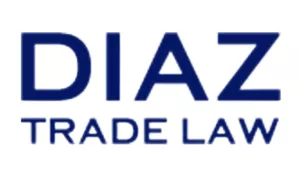Trade policies are shifting faster than ever, with new tariffs, complicated regulations, and heavy enforcement measures impacting businesses across industries. If you are an importer, staying ahead of these changes is critical to maintaining smooth operations and avoiding financial setbacks.
With trade policy in flux, now is the time to ensure you are on solid footing by auditing your compliance strategies, reassessing tariff exposure, and ensuring your business is prepared for what's ahead.
Audit Your Business Before CBP Does
Conducting an audit of your business to check for import compliance is an essential step to avoid costly penalties, thwart supply chain disruptions, and to minimize legal risk. An audit helps identify potential compliance gaps, ensuring that your existing business practices are in compliance with all applicable regulations. It also allows businesses to proactively address issues before they escalate.
Import Report Card
Diaz Trade Law can provide a customized ACE report card to give you an overview of your import compliance. The report contains a summary of your import transactions and identifies potential issues in your business' processes as well as substantive recommendations to ensure compliance. The report provides information like:
- Your last 5 years of import history
- List of HTS's you use
- Total amounts paid in AD/CVD
- Manufacturer ID's reported to Customs
- Inconsistencies in reporting
- Total value of imports and duties paid by year
- Review of countries of origin of your imported merchandise
- Use of Free Trade Agreements
- Your surety, bond coverage, and bond type
- And more!
Lastly, the Report Card service includes a one hour debrief with a Customs and Trade Law expert on the findings and recommendations.
Pre-Compliance – Plan Now or Pay Later
Many mistake the ease of importing to mean there is no liability or obligation on the part of the importer. Whether your company is new to importing, or has been in the business for years, CBP expects importers to use "reasonable care" to ensure compliance with relevant rules and regulations.
Reasonable care requires importers to conduct themselves as a reasonable importer would under the circumstances with respect to importing goods into the United States.
Reasonable care requires importers to:
- Meet the standard to enter, classify and determine the value of imported goods
- Provide other information necessary to aid CBP in properly assessing duties and collecting accurate statistics
- Determine whether other applicable legal standards and requirements have been met
Diaz Trade Law has significant experience in a broad range of trade compliance matters, including helping companies customize their own import compliance program. The program can entail developing import compliance documents, ongoing training for various departments in your business, regular internal audits, record keeping, and more. Such a program can help you not only avoid penalties and potential criminal liability but can also help in the mitigation process should a violation be discovered. Remember, just because your goods have been allowed to enter the U.S. in the past, doesn't mean those importations were compliant or that Customs will never pursue additional duties for those entries.
Tariff Minimization
Tariff increases have a significant impact on businesses involved in importing goods into the U.S. However, importers are not without options. There are several legal ways to minimize tariff costs, including:
- Temporary Importation under Bond (TIB)
- Incoterms
- Duty drawback
- Tariff engineering
- Country of origin change
- First sale
- Duty deferral
- Free trade agreements
- Moving some manufacturing to the U.S.
Importers exploring options to minimize tariff liability should always work with an expert to ensure they comply with all U.S. Customs regulations before making any changes. Duty evasion, even if unintentional, is a serious matter and can result in hefty monetary penalties or even prison time in the case of fraud.
A Customs Attorney Can Help You Prepare and Adapt
Diaz Trade Law has significant experience in a broad range of trade compliance matters and can help your business navigate constantly changing trade policy. From evaluating your existing practices to building a compliance program from scratch, we can help. Contact us at info@diaztradelaw.com or call us at 305-456-3830.
The content of this article is intended to provide a general guide to the subject matter. Specialist advice should be sought about your specific circumstances.


